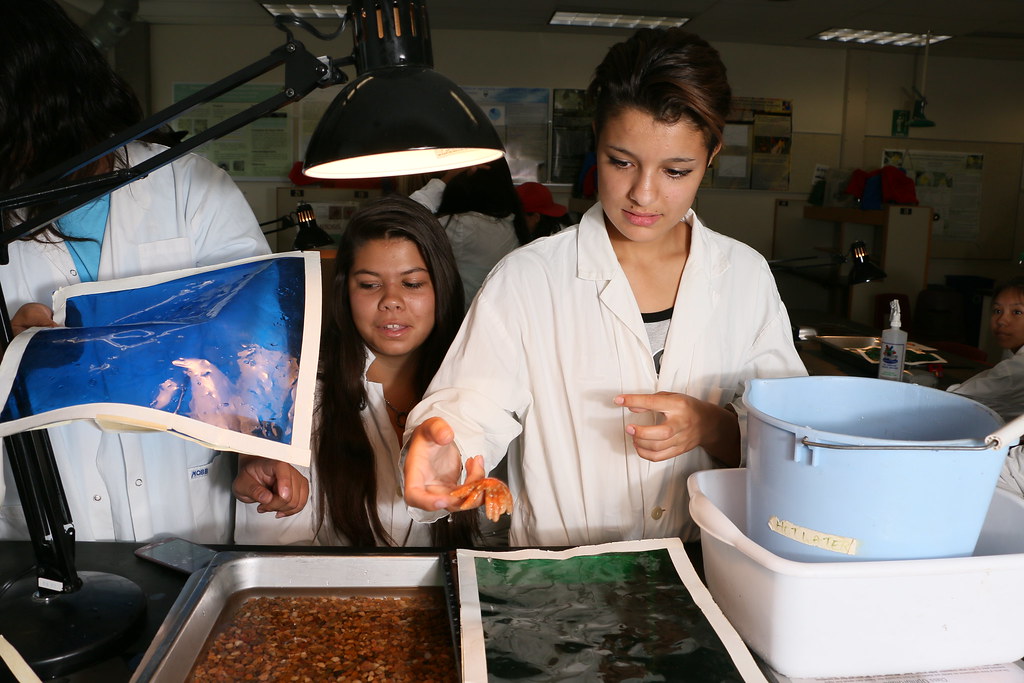
The Science in Australia Gender Equity (SAGE) initiative is a partnership between the Australian Academy of Science (AAS) and the Australian Academy of Technology and Engineering. SAGE’s vision is to improve gender equity in STEM (Science, Technology, Engineering, Mathematics) in the Australian Higher Education and Research sector. It is doing so through building a sustainable and adaptable Athena SWAN model for Australia – a model based on 10 key principles that promote equality and diversity in both STEM and academic disciplines. Athena SWAN provides a framework for institutions to adopt principles that support, recognize and advance the careers of women in STEM – and to adopt them within their policies, practices, action plans and culture.
“A key impact of the SAGE pilot is that it has challenged members to critically assess the state of gender equity in their institution, devise actions to address any systemic or cultural barriers they identify, and importantly – to commit to transparency by publishing their self-assessment and sharing their action plans”, says Wafa-El Adhami, SAGE Executive Director. “These barriers are not broken down overnight, but we are already seeing early evidence of impact and we will begin to see these actions starting to really bear fruit in the years to come.”
On 20 February 2020, 13 institutions from Australia’s higher education and research sector were recognized for their efforts to critically assess gender equity and diversity in their own institution, and devise actions to address any systemic or cultural barriers they identify. They are the latest institutions to receive Athena SWAN Institutional Bronze Awards as part of the SAGE initiative, with Australia being the first country outside the UK to adopt the Athena Swan Charter framework. Other countries looking to follow include New Zealand, Japan, Canada and the United States.
“Evidence shows that companies with gender-diverse leadership teams and boards are more successful than those without gender diversity.”
-Wafa El-Adhami, SAGE Executive Director
Forty-five Australian higher education and research institutions have completed the SAGE pathway to accreditation, with the majority (86 per cent) being awarded the Athena Swan Institutional Bronze category, at a gala dinner earlier this year.
“Part of the Athena SWAN Charter aims to address the ‘leaky pipeline’ of women progressing to senior roles in STEM. It’s a problem I’m all too familiar with,” said Professor Halina Rubinsztein-Dunlop, who spoke on behalf of the Australian Academy of Science at the gala dinner. “It was evident two decades ago when I became the first female Professor of Physics in Australia in 2000. Unfortunately, it’s still a major problem now.”
There is also a critical issue in diversity and equality within STEM in Australia. People who identify as Aboriginal or Torres Strait Islander, those who are culturally and linguistically diverse, LGBTQIA+ and those who have a disability are persistently under-represented, facing additional barriers to their participation in STEM. This is another area that SAGE is working on, to encourage the Higher Education and Research sector to take up the principles around Athena SWAN.
The Academy has additionally developed STEM Women, a unique tool that provides a platform for experts, and have supported the development of a best practice guide for improving diversity in prizes and awards by the Early- and Mid-Career Researcher Forum.
The Academy would like to see all STEM organisations join them as champions, to harness gender equity efforts and collaborate more deeply to reach their shared vision.
The International Science Council, through its Action Plan Advancing Science as a Global Public Good, has outlined the need for change in scientific systems, which must be able to continually adapt to changes in knowledge, technology and societal norms. The ISC is developing its project, Gender Equality in Science: From awareness to transformation, with partners such as GenderInSITE, the Inter-Academy Partnership and the Global Research Council. In the weeks leading up to International Women’s Day, we are focusing on gender awareness, highlighting achievements, challenges and initiatives for ensuring gender equality in science and across disciplines.
*This statistic does not include the percentage of women in social science fields.
Photo by Thompson Rivers on Creative Commons